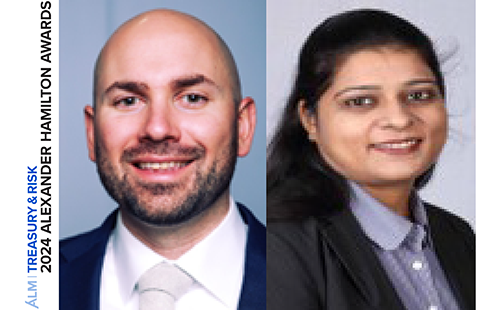Central bankers and industry participants made their strongest statement yet against the use of last look, the controversial practice in currency trading that allows dealers to back out of losing trades.
Government officials and traders who comprise the Global Foreign Exchange Committee (GFXC) changed the FX Global Code to indicate that no one should “undertake trading activity that utilizes information from the client's trade request during the last-look window.” That strengthens guidelines issued in May, which didn't settle the debate over the lightning-rod issue.
The GFXC is revising the code to outline the conditions under which what's known as “cover and deal” may be distinguished. Respondents to a consultation had argued that such trading arrangements are an important feature of the foreign exchange market and so should be named as an exception to the ruling. The group will also look into disclosures about last look on anonymous electronic trading platforms.
The voluntary standards were first released in May, when they said that trading during the last-look window was “likely inconsistent with good market practice.” After a consultation in which firms including Vanguard Group, Citadel, and DRW Holdings called for the convention to be ended altogether, the GFXC concluded last month that market participants shouldn't trade on information from clients' transaction requests in the window.
“The language is unambiguously stronger,” said David Puth, chief executive officer of CLS Group Holdings and vice chair of the GFXC. “We knew that trading in the last look window had the potential to be an emotive issue. We devoted considerable time to soliciting the views of the broadest number of market participants.”
Credit Suisse Group agreed in November to pay $135 million to resolve currency-manipulation allegations with New York's banking regulator, including using last look to reject trades that would have been unprofitable for the bank. Barclays agreed to pay $150 million in 2015 for allegations of abusive practices relating to last look.
The FX Global Code is an effort to beef up standards following a rate-rigging scandal that led to about $10 billion in fines for banks.
“The GFXC is committed to ensuring the FX Global Code keeps pace with a fast-evolving market,” said Bank of England Executive Director for Markets Chris Salmon, who also chairs the committee. “This will support our objective of improving market practice and rebuilding trust.”
From: Bloomberg News
Complete your profile to continue reading and get FREE access to Treasury & Risk, part of your ALM digital membership.
Your access to unlimited Treasury & Risk content isn’t changing.
Once you are an ALM digital member, you’ll receive:
- Thought leadership on regulatory changes, economic trends, corporate success stories, and tactical solutions for treasurers, CFOs, risk managers, controllers, and other finance professionals
- Informative weekly newsletter featuring news, analysis, real-world case studies, and other critical content
- Educational webcasts, white papers, and ebooks from industry thought leaders
- Critical coverage of the employee benefits and financial advisory markets on our other ALM sites, PropertyCasualty360 and ThinkAdvisor
Already have an account? Sign In Now
*May exclude premium content© 2025 ALM Global, LLC, All Rights Reserved. Request academic re-use from www.copyright.com. All other uses, submit a request to [email protected]. For more information visit Asset & Logo Licensing.





